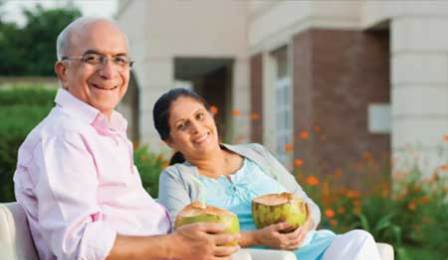Are you aware of your rights as a senior citizen in India? Read on to know what these rights are.
by Advocate Aileen S Marques
In 2014, India had about 10 crore people above 60 years of age, this number is expected to touch 32 crores by 2050. The 2014 report by a NGO- Helpage India highlights a very sad state of affairs in the lives of the “old in age-young at heart”. According to this survey more than 50% respondents faced some form of abuse and 41% of them chose to keep silent and bear the pain. It’s time that the hands that nurtured us reclaim their rights.
Similar to the theory of reverse mortgage, all those who will benefit from the property and assets of the senior citizens are legally bound to provide for their needs.
The document ‘UN Principles of Ageing’ (1982) is considered the basic guideline for promotion of the rights of senior citizens. The five principles enumerated therein are: Independence; Participation; Care; Self-Fulfilment and Dignity. The right to access adequate food, water, shelter, clothing and health care is basic to the lives of senior citizens. They should also have access to health care to help them maintain the best possible level of physical, mental and emotional well-being.
Older persons have a right to live in dignity in a safe environment, free from exploitation and mental, economic and physical abuse. The Indian laws provide for maintenance for parents who are ignored and neglected by their children. The section 125 of the Code of Criminal Procedure provides for the maintenance of parents who are unable to maintain themselves. The Protection of Women from Domestic Violence Act 2005 provides protection from violence, the right to residence and maintenances for women (even mothers) who face violence from their children.
The Maintenance and Welfare of Parents and Senior Citizens Act, 2007, is an Act that provides more effective provisions for the maintenance and welfare of parents and senior citizens guaranteed and recognised under the Indian Constitution. Parents and senior citizens have a right to be maintained by their children. Similar to the theory of reverse mortgage, all those who will benefit from the property and assets of the senior citizens are legally bound to provide for their needs.
So if the senior citizen has property which his/her children will inherit on his/her death, then according to 2007 Act, they are legally bound to maintain the senior citizen during their lifetime. Children have an obligation towards their parents. In an attempt to rejuvenate the lives of the senior citizens, the Government of India has introduced many policies and schemes. Senior citizens have to realise that they have rights, the most important being the right to life. It is important that they become aware of their rights and assert them rather than succumb to the pains and pressure of their victimising children. Life is a blessing of God, live it with grace and dignity.
‘Grey Space’ is a weekly column on senior citizen issues. If you have an anecdote or legal information, or anything you feel is useful to senior citizens, caregives and the society at large, feel free to get it published in this space. Write to editor@themetrognome.in or on Facebook at www.facebook.com/Themetrognome.in and we will publish your account.
(Picture courtesy estatebulletin.in. Image is used for representational purpose only)
